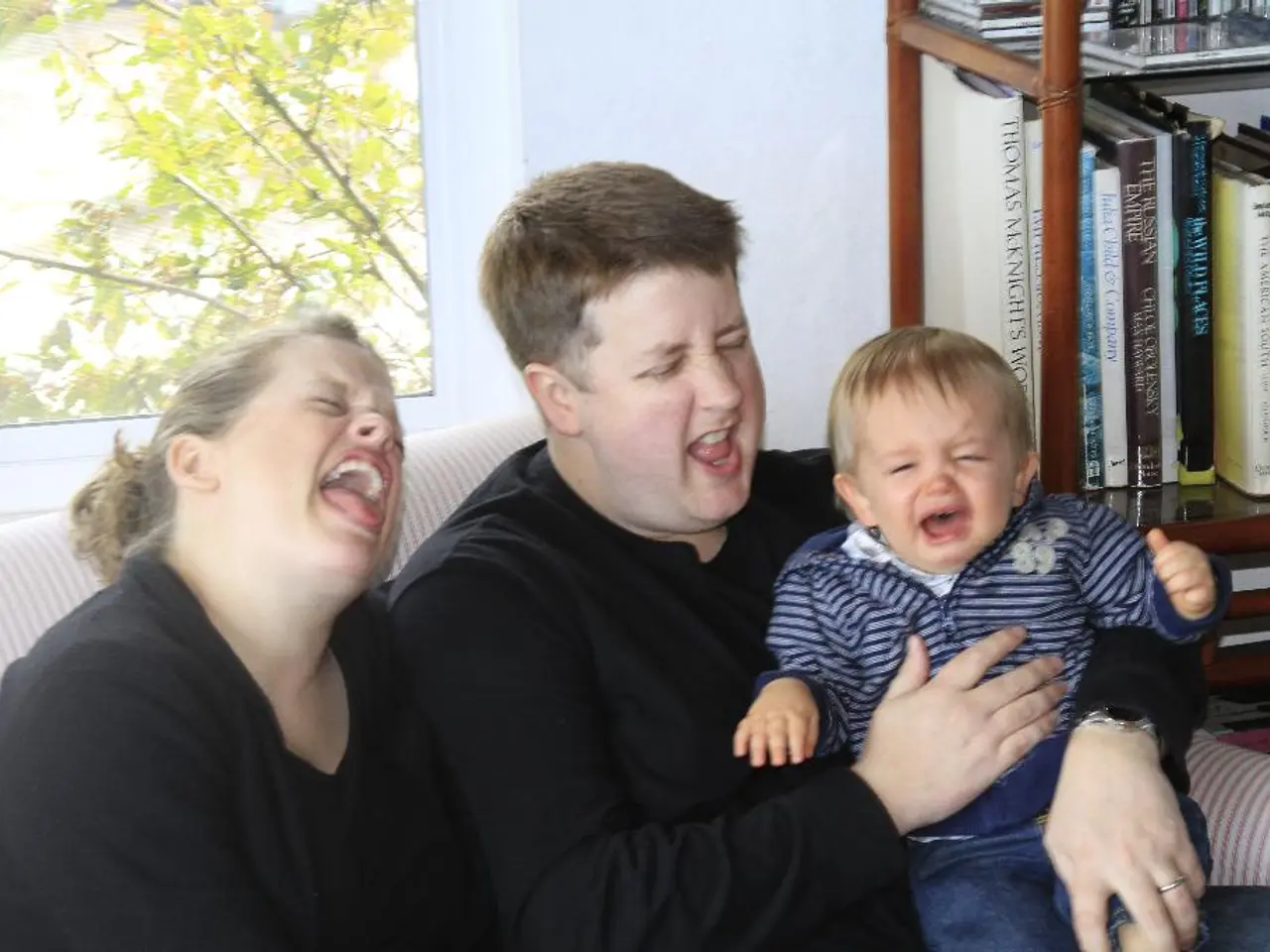The effects of strained father-child dynamics on adult life, explained: a look into the concept of father-related emotional struggles in maturity.
In many adult relationships, emotional and behavioural signs of father-related trauma can manifest in unexpected ways. These signs, while varied, often include a fear of abandonment and rejection, hyper-vigilance and anxiety, difficulty setting boundaries, excessive responsibility, people-pleasing tendencies, and struggles with trust and intimacy.
The fear of abandonment and rejection can stem from inconsistent, conditional love received from the father, leading to a chronic need for reassurance, clinging to unhealthy relationships, or avoiding relationships entirely. This can result in self-sabotaging behaviours in adulthood.
Hyper-vigilance and anxiety emerge as survivors constantly monitor others’ moods to avoid conflict, a survival mechanism developed during childhood. This manifests as generalized anxiety, panic attacks, or social anxiety in adult relationships.
Difficulty setting boundaries and people-pleasing behaviour reflect parentification, where children took on adult-like caregiving roles early on. Adults with this trauma often prioritize others’ needs excessively, feel guilty attending to themselves, and struggle to say “no” or protect their own emotional space.
Excessive responsibility and hyper-independence are common, as these adults often feel they must manage everything alone to prevent chaos, making delegation and trusting others difficult.
Trust issues and fear of intimacy or commitment can arise from witnessing dysfunctional or abusive parental dynamics, disrupting healthy attachment formation and causing emotional instability.
In addition, some may experience rage triggers, hypervigilance to hypocrisy or cowardice, and projection related to father figures, especially if the father was codependent or absent in protecting the child.
Together, these signs reflect deep impacts on self-worth, emotional regulation, and relational patterns rooted in father-related trauma. Healing typically involves therapy to separate past from present, build self-esteem, develop healthy boundaries, and address trauma-related anxiety.
Mindfulness-based strategies and narrative therapy can also be used alongside these modalities to help get at the root of the issue and bolster healing. Family therapy involves working with the individual and their family members, including their father (if safe and appropriate), to address relational dynamics and communication patterns that may be contributing to the issues.
Cognitive Behavioural Therapy (CBT) helps identify and challenge negative thought patterns and behaviours, and teaches coping skills to manage distressing emotions and improve interpersonal skills.
It's important to note that therapy is a highly individualized process, and the most effective approach will depend on the specific needs and circumstances of the individual seeking treatment. Attachment-based therapy helps individuals understand their attachment style and how it relates to their relationships with their fathers and others, with the goal of developing more secure and healthy attachment patterns.
Therapy often works best alongside other forms of support, such as support groups, self-help resources, and a strong social support network. Trauma therapy, such as Eye Movement Desensitization and Reprocessing (EMDR) or Trauma-Focused Cognitive Behavioural Therapy (TF-CBT), can be beneficial in cases of significant trauma or abuse involving the father.
In conclusion, addressing father-related trauma is a complex process that requires understanding, patience, and the right therapeutic approach. By seeking help and embarking on this journey, individuals can work towards healing, self-improvement, and healthier relationships.
- Emotional and behavioural signs of father-related trauma can manifest in unexpected ways, like a chronic need for reassurance or avoiding relationships entirely.
- Survivors of this trauma may exhibit hyper-vigilance and anxiety, constantly monitoring others’ moods to avoid conflict.
- Difficulty in setting boundaries and people-pleasing behaviour can be traced back to parentification, where children assumed adult-like caregiving roles early on.
- For such adults, excessive responsibility and hyper-independence are common, making delegation and trusting others hard.
- Trust issues and fear of intimacy or commitment often stem from witnessing dysfunctional or abusive parental dynamics.
- Some may experience rage triggers, hypervigilance to hypocrisy or cowardice, and projection related to father figures.
- Healing from father-related trauma typically involves therapy to separate past from present, build self-esteem, and develop healthy boundaries.
- Mindfulness-based strategies and narrative therapy can aid in uncovering the root of the issue and bolstering healing.
- Family therapy helps address relational dynamics and communication patterns that may be contributing to the issues, involving the individual and their family members, including their father (if safe and appropriate).
- Cognitive Behavioural Therapy (CBT) is beneficial in identifying and challenging negative thought patterns, teaching coping skills to manage emotions and improve interpersonal skills.
- Therapy is a highly individualized process, with the most effective approach depending on the specific needs and circumstances of the individual.
- Addressing father-related trauma requires understanding, patience, and the right therapeutic approach, leading to healing, self-improvement, and healthier relationships.




